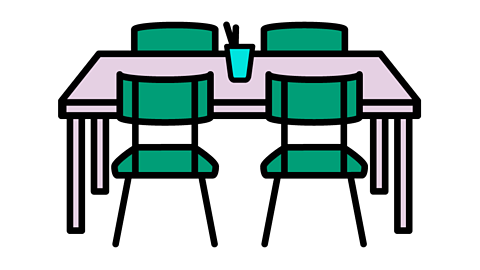
Welcome to The Regenerators.
Produced in partnership with The Open University
Career profile
Meet Hollie, a primary school teacher in Glasgow.
One reason Hollie became a teacher was to help children learn about the world around them and understand what actions they can take to protect it.
Find out about Hollie's career and how she helps children to learn about the environment.
Hollie: Hi, I'm Hollie. I am a teacher here in Glasgow, and this is why I love my green career.
Teaching children about the world that we live in is one of the main reasons I became a teacher. In Scotland there's an initiative called Learning for Sustainability.
And the aim is to teach children about their environment, about climate change, about the actions that they can take as well as educating them about the careers that they can go into and developing skills for work, learning words such as biodegradable, learning which things are classed as single use plastic, which things are not.
Alternatives for those items as well and we looked at things at home in our cupboards that we could switch out to make more sustainable choices.
We have eco-monitors at school somebody to make sure that the lights are always switched off somebody to make sure that the taps are all switched off properly.
Giving children the opportunity and a little bit of responsibility, it makes them feel good and it shows them that they can actually make a difference.
I went to university and I did a four year teaching degree, which got me to where I am now.
You can also go and do another degree and then do a teaching postgrad If you would prefer. And there's also a whole host of volunteering opportunities and other ways to get into the classroom as well.
There are a number of other roles available within schools that don't require a university degree. You can get involved with things like learning support and become a classroom assistant, or you can also lead clubs or after school care as well.
There are lots of opportunities for progression within teaching.
There are opportunities to join senior leadership teams in schools and move on to headship. You could also sidestep and focus on speech and language therapy or outdoor education. And alongside that, there's many opportunities to teach abroad as well, which is definitely something that I've got my eye on.
For anybody considering a career in teaching, I would say go for it. It is a busy career, it is stressful at times and challenging at times but the difference that you make in the classroom is what it's all about. It's an extremely rewarding job and being able to see small changes that are going to take a child somewhere fantastic is what teaching is all about.
It’s an extremely rewarding job and being able to see small changes that are going to take a child somewhere fantastic is what teaching is all about.
Hollie, teacher
- Hollie completed a Master of Arts in Education. There are other routes into teaching, but Hollie always knew she wanted to be a primary school teacher and applied for four year university course.
- Learning for Sustainability is an education initiative in Scotland which encourages outdoor learning, global citizenship and social welfare. Teachers in Scotland should be able to demonstrate Learning for Sustainability in their lessons and all students are entitled to learn about the environment.
Green education

Education is vital to encourage young people to take action on the environment.
Teachers need to be able to support children to understand issues, whilst communicating challenging and sensitive subjects in a way that helps children to feel empowered and inspired.
Teachers can also model this behaviour and ensure that schools adopts sustainable practices.
The environment affect every subject we learn about, so teachers like Hollie need resources to make learning fun and accessible.
With climate and the environment becoming more central to curricula across the UK, demand for skills in this area are likely to grow.

Salary and hours

- Primary school teacher average salary: £25,714 to £41,604 per year
- Primary school teacher typical hours: 37 to 45 hours per week

Entry requirements

- Undergraduate degree: You could get into this role by doing an undergraduate degree that leads to qualified teacher status (QTS), such as a Bachelor of Education (BEd). You'll usually need GCSEs (or equivalent) at grades 9 to 4 (A* to C), including maths, English and science and two to three A-levels or equivalent for a degree
- Postgraduate study/training: If you have a degree in a curriculum subject without QTS, you can qualify as a teacher by completing a postgraduate teacher training course at university or on a school-based training programme
- Apprenticeship: You can also get into this career through a teacher higher apprenticeship, if you have a relevant degree and want to teach 5 -11-year-olds. You'll usually need GCSEs (or equivalent) at grades 9 to 4 (A* to C), including maths, English and science, and a degree in a relevant subject
- Work: You could also work towards this career by starting as a teaching assistant and doing a part-time degree. You could then move onto a postgraduate teaching course to get qualified teacher status.
This information is a guide and is constantly changing. Please check the National Careers Service website for the latest information and all the qualifications needed. (Sources: LMI for All, National Careers Service).
Learn more about routes into teaching on the Get Into Teaching website.
For careers advice in all parts of the UK visit: National Careers service (England), nidirect (Northern Ireland), My World of Work (Scotland) and Careers Wales (Wales).

There's more to learn
Explore more careers with BBC Bitesize and The Open University.
More from The Regenerators
BBC BITESIZE




